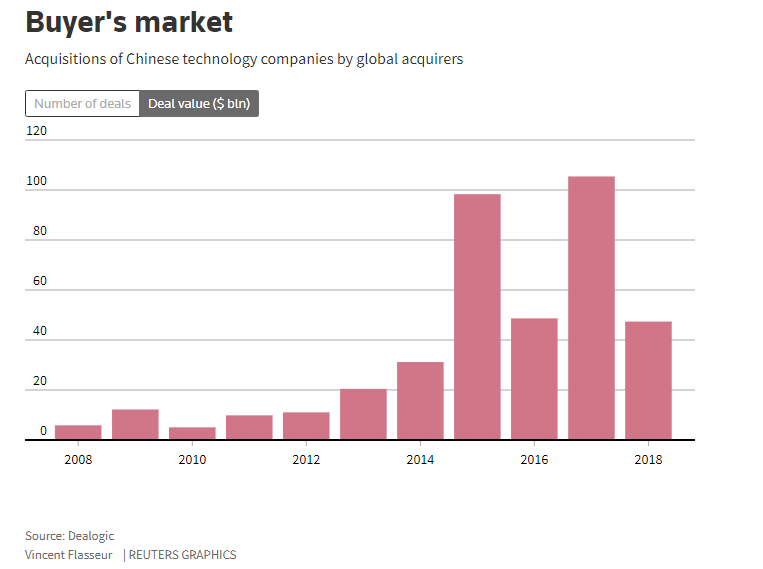BY ALEC MACFARLANE
China’s startups will need — and receive — a mergers-and-acquisitions lifeline in 2019. Regulatory tightening, rough public markets and a slowing global economy mean many tech hatchlings will struggle to raise money. With serial acquirer Tencent’s deal machine slowing, that creates a buyer’s market for the likes of Alibaba, SoftBank and Xiaomi. Enterprise software, artificial intelligence and electric-car companies offer the most vulnerable targets.
Some $45 billion was raised in the first three quarters of 2018 by Chinese startups, CB Insights reckons, 40 percent more than the year before. Yet just a tenth of the 25-odd Chinese internet firms that went public in Hong Kong and New York this year are above water, making it difficult to justify funding pre-initial public offering rounds. New laws have also battered the stocks of gaming, education and fintech companies, as have the effects of the U.S.-China trade war and a mainland slowdown on domestic consumption and tighter credit access. Valuations will fall further.

For cashed-up corporations, that’s shopping time. The 800-pound M&A gorilla had been Tencent, whose acquisitions have fallen amid a sliding stock price, regulatory pressure and restructuring. Alibaba’s $30 billion cash pile and enterprise software and cloud ambitions make it a go-to shop for sell-side bankers. But a lack of sizeable targets makes for slim pickings.
More opportunity lies in overcrowded sectors where all but the best companies may struggle to raise money. SoftBank-backed artificial intelligence upstart SenseTime could look to buy smaller peers like 3D-imaging company Deep Glint. Fresh from its successful IPO, electric-vehicle maker Nio may hoover up rivals like Chehejia. Faced with falling advertising spending and the poor debuts of Aurora, Gridsum and Mobvista, smaller and weaker ad-tech companies that can’t go public may merge with competitors.
Companies like news aggregator Qutoutiao that have struggled since floating could end up being bought by content-hungry ByteDance or even Xiaomi, which wants to better engage users of its mobile phones. Niche e-commerce companies like Babytree, which has also performed poorly, may end up selling to cash-rich buyout firms like Hillhouse or KKR. China’s baby tech pandas could soon find themselves in new habitats.
First published Dec. 14, 2018.